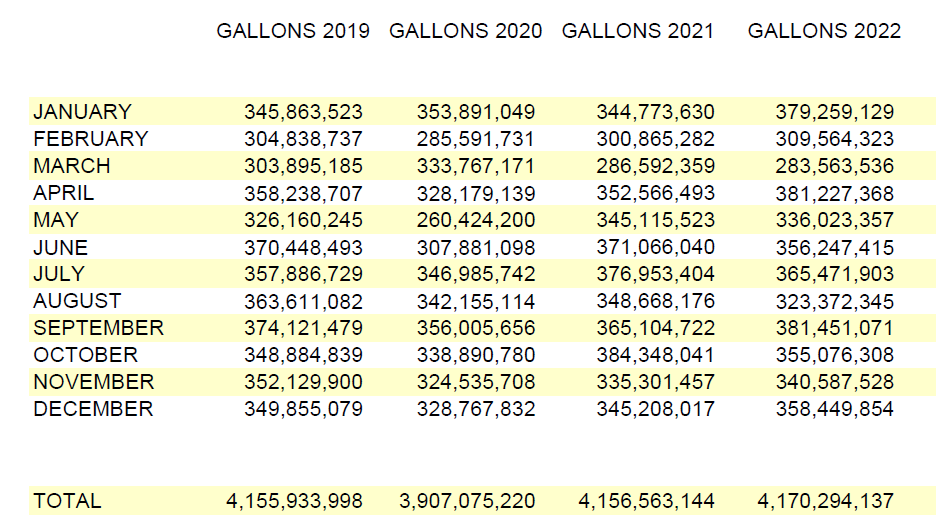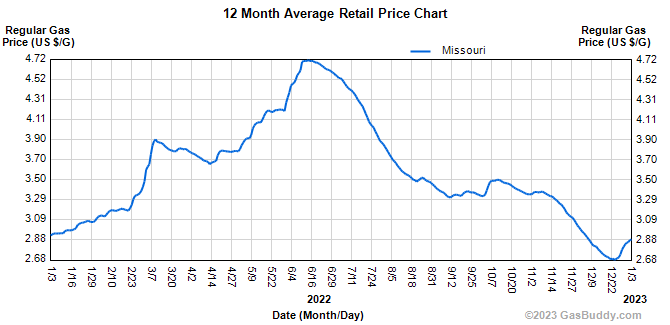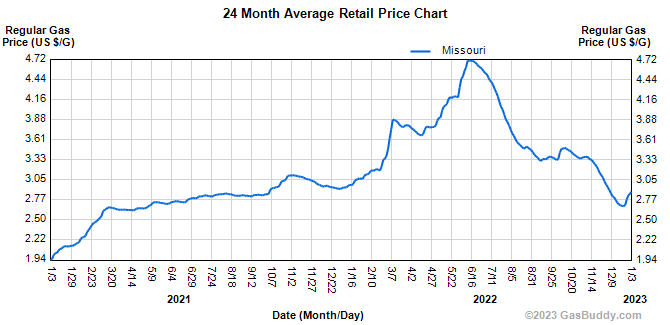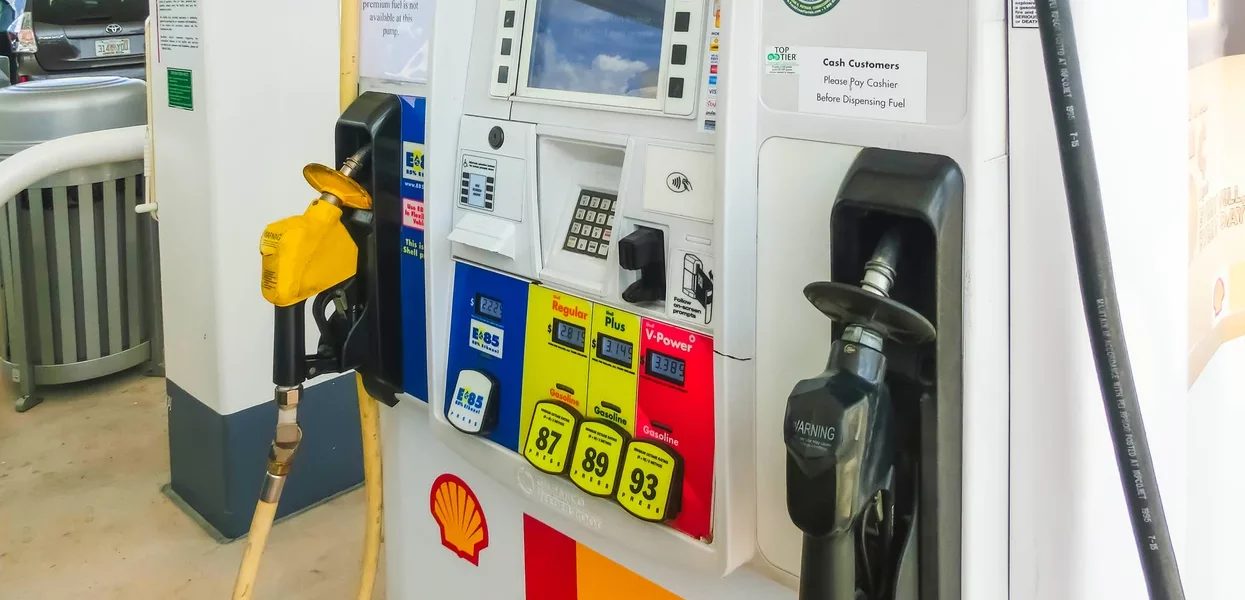Despite all the “pain at the pump” in 2022, fuel consumption in Missouri was up slightly over 2021. I’ve been covering the situation all year –
NextSTL – Missouri fuel prices peak in June, demand falls a little, more wealth leaves the state
NextSTL – Fuel demand in Missouri remains robust despite “high” prices
NextSTL – Near record demand continues despite high? gas prices
NextSTL – Record Gas Prices Didn’t Decrease Fuel Sales in Missouri

We’ve seen just how inelastic fuel consumption is in Missouri. With no practical choices for the vast majority of trips for the vast majority of people, they lack the freedom to substitute cheaper modes of transportation. The government’s efforts at all levels to coerce car dependency is demonstrated in the helplessness of consumers to avoid the pain. Much has been made lately of the rising price of eggs. Well at least you can eat something else.



I’ve discussed before how damaging the state’s endemic car dependency is to the state’s economy. Eye-balling the graphs above, the average price in 2022 was about $3,80 and $2,80 in 2021. That means $4.170B extra was spent on fuel, most of which left the state because there is no oil production and no oil refineries in Missouri. No additional economic activity was enabled by that extra spending; spending that could have gone to other things, many of which would have kept a higher proportion of wealth in the local economy. For comparison the state’s GDP in 2021 was $296B.
Let’s consider if, in the face of higher fuel prices, consumers had the freedom to dial back their consumption by 10% without lowering their productivity. $3.80 / gal x 4.170B gal x 10% = $1.58B. Other modes aren’t all costless of course, then again there is even more money saved by putting fewer miles on vehicles, getting into fewer crashes, and less spent on healthcare for the health problems caused or exacerbated by car pollution.
Compare that to the $764M income tax cut the legislature passed and the governor signed during the special session last September. Sounds like the session should have focused on enabling more transportation mode choices to bring relief to Missouri families.
Republican Rep. Bill Kidd of Buckner asked his colleagues to provide relief to poor Missourians and senior citizens in the 2023 legislative session.
“Please do something that will impact real people,” Kidd said, adding “If you are in the $100,00 to $200,000 range you are going to like this tax cut. But if you are a poor person or a person on a fixed income, this doesn’t do it.”
Legislature sends $764 million income tax cut to Missouri governor – The Missouri Independent
According to the Missouri Budget Project a family making $52k a year would save about $66 from the income tax cut. Meanwhile if they consume 1,000 gallons of fuel a year, and could cut it by 10%, that would have saved them $380 just in fuel. If you use the mileage reimbursement rate and assume 20 mpg fuel economy, that’s 2000 miles * $0.625 = $1,250 saved. Given the burden borne by families and the myriad other negatives of car dependency, like crashes and the climate crisis, the legislature should focus on providing relief, not from income taxes, or gas taxes, but the car-dependency tax.
Instead we see the Governor proposing to subsidize driving and coerce more car dependency. How high will fuel prices have to go before leaders recognize the suffering their choices cause?

